Shopify Plus vs Enterprise eCommerce: A Complete Comparison
- ECommerce
- Migration
- User Experience
Launched
May, 2025
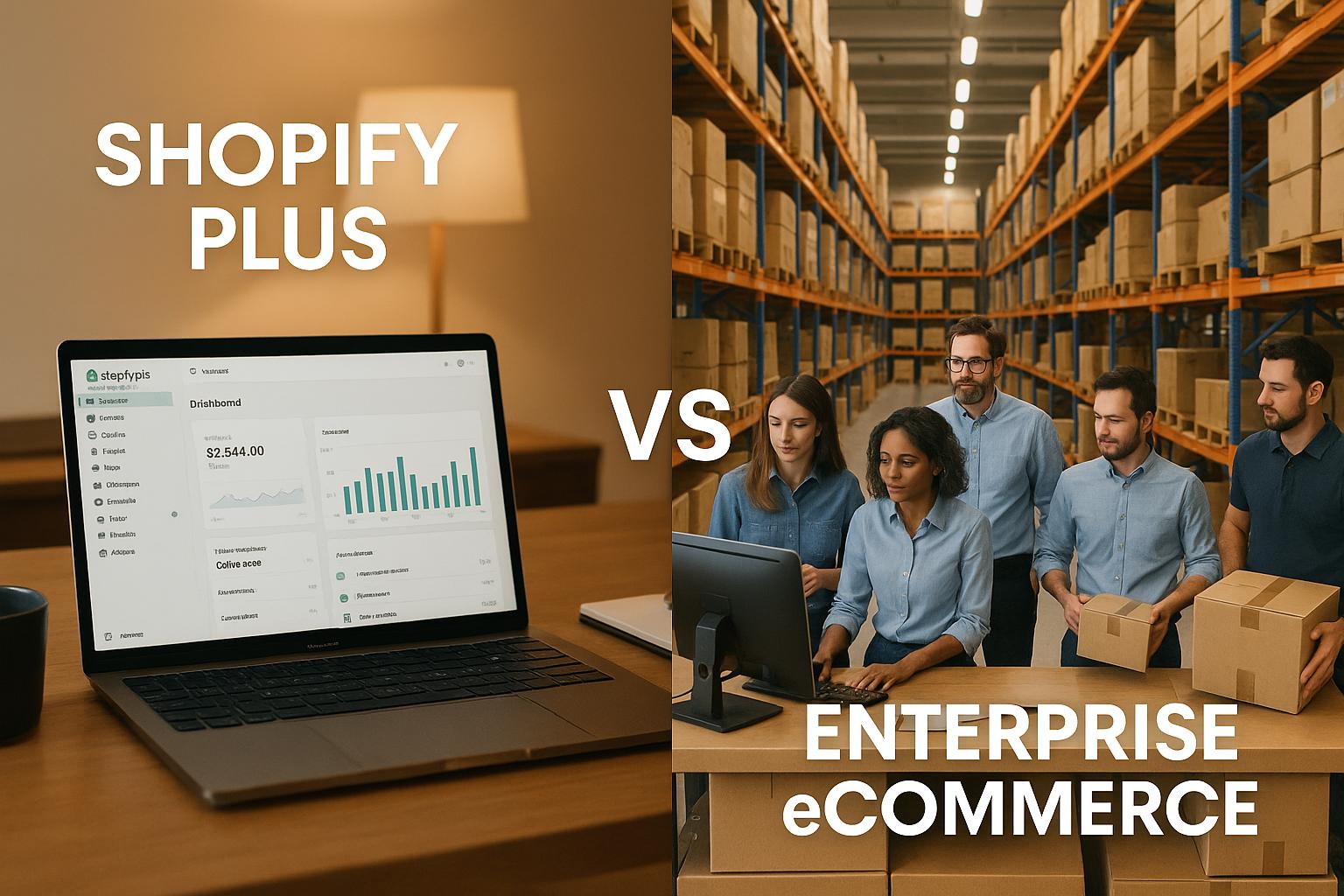
Choosing the right eCommerce platform for your business can make or break your online success. This article dives into the differences between Shopify Plus and enterprise eCommerce platforms, helping you decide which is the better fit for your needs.
Key Takeaways:
- Shopify Plus is perfect for businesses wanting speed, simplicity, and scalability. It offers managed hosting, automation tools, and lower upfront costs.
- Enterprise platforms suit businesses with complex, custom needs but require more technical expertise and higher costs.
Quick Comparison:
| Feature | Shopify Plus | Enterprise Platforms |
|---|---|---|
| Ease of Use | User-friendly, no coding required | Requires technical expertise |
| Customization | App Store & APIs for flexibility | Full-stack customization possible |
| Cost | Predictable, starting at $2,300/month | High upfront and ongoing expenses |
| Hosting | Managed hosting included | May require external hosting |
| Scalability | Handles global traffic efficiently | Custom scaling solutions needed |
| Setup Time | Launch up to 50% faster | Longer implementation cycles |
| Security | PCI Level 1 compliance by default | Varies by implementation |
Bottom Line:
If you need a fast, cost-effective solution with built-in tools, Shopify Plus is ideal. For businesses with highly specific technical demands, enterprise platforms may be worth the investment. Read on for a detailed breakdown of features, costs, and real-world examples.
Cost, Capability & Complexity: Comparing the Best Enterprise eCommerce Platforms
Technical Setup and Hosting
The backbone of any successful enterprise eCommerce operation lies in its technical setup. Here's a closer look at how Shopify Plus measures up against traditional enterprise platforms in terms of hosting, security, and maintenance.
Hosting Infrastructure and Performance
Shopify Plus is built for speed and reliability, leveraging a global Content Delivery Network (CDN) with 300 locations worldwide and response times clocking in at under 50 milliseconds.
Here’s a snapshot of Shopify Plus's hosting capabilities:
| Feature | Shopify Plus Specifications |
|---|---|
| Uptime SLA | 99.99% guaranteed |
| Transaction Processing | Handles over 10,000 checkouts per minute |
| Bandwidth | Unlimited |
| Server Response Time | < 50ms |
| Global CDN Points | 300 locations |
This infrastructure ensures smooth operations, even during high-traffic events like flash sales.
Security and Compliance
Shopify Plus prioritizes security with a multi-layered approach, addressing critical vulnerabilities and maintaining Level 1 PCI compliance across all six PCI standard categories by default.
"All stores powered by Shopify are PCI compliant by default so you can keep payment info and business data safe." - Shopify
This built-in compliance simplifies the process for businesses, ensuring sensitive payment and customer data remain secure.
Maintenance and Resource Management
One of Shopify Plus's standout features is its managed hosting, which significantly reduces the resources businesses need to allocate for platform maintenance. A telling example comes from Dollar Shave Club:
"We spent about 40% of our total tech resources just on maintaining our homegrown platform." - Kyle Iwamoto, Vice President of eCommerce, Dollar Shave Club
For Boston Proper, migrating to Shopify Plus brought transformative results:
- Feature implementation time dropped from 6–9 months to just minutes.
- Software expenses were slashed by hundreds of thousands of dollars.
- Conversion rates saw a 4% boost.
By handling hosting and maintenance, Shopify Plus allows businesses to focus on growth rather than technical upkeep.
Data Protection and Privacy
Shopify Plus also ensures compliance with GDPR and CCPA standards, providing robust data protection measures to safeguard customer privacy.
Performance Under Pressure
The platform is designed to handle the demands of global businesses, whether it’s managing flash sales, withstanding cyberattacks, or accommodating sudden traffic spikes. Daily Harvest, for instance, saw Shopify Plus as the perfect solution for scaling their operations:
"We knew if we moved to Shopify, we could scale the entire business quickly." - Yu Jin Yong, VP of Digital, Daily Harvest
Similarly, Lull’s migration to Shopify Plus led to significant savings, including a 25% reduction in both infrastructure and software costs, as well as a 25% cut in processing fees.
This level of performance and cost efficiency makes Shopify Plus a compelling choice for enterprises aiming to scale while maintaining operational excellence.
1. Shopify Plus Core Features
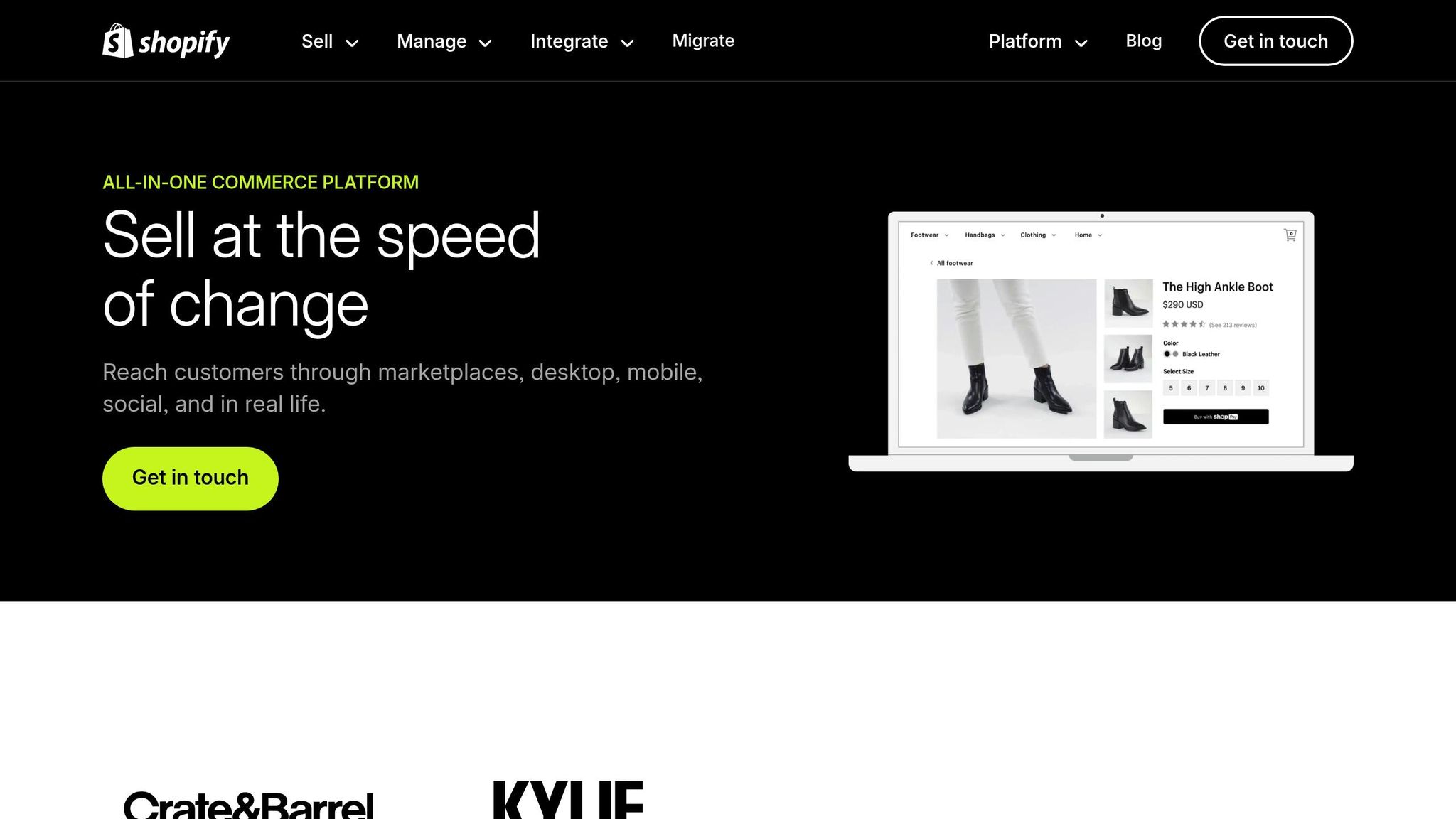
Shopify Plus is designed to cater to high-volume merchants with tools that streamline operations and enhance customer experiences. Here's a closer look at what makes this platform a standout choice for enterprise-level businesses.
Advanced Commerce Tools
Shopify Plus equips businesses with features that simplify operations and improve user engagement:
| Feature | Capability | Business Impact |
|---|---|---|
| Shopify Flow | Automates workflows | Minimizes repetitive tasks |
| Launchpad | Manages flash sales | Handles high-traffic events |
| Shop Promise | Boosts conversions | Increases conversion rates by up to 25% |
| Checkout Editor | Customizes branding | Strengthens brand identity |
| Markets Pro | Supports global selling | Expands reach across markets |
Customization and Development
Shopify Plus takes customization to another level with tools that allow businesses to tailor their stores to specific needs:
-
Checkout Extensibility
- Personalize checkout with unique fonts, colors, and logos.
- Add custom functionality using checkout apps.
- Leverage advanced API integrations for tailored solutions.
-
Shopify Functions
- Create custom product bundles.
- Set up advanced order routing.
- Implement specialized checkout validation rules.
Language and Payment Support
Shopify Plus further enhances its flexibility with robust language and payment options:
- Checkout available in 20 languages.
- Seamless integration with major payment gateways.
- Shop Pay optimization, which can boost conversion rates by 50%.
Merchant Success Program
Enterprise users gain access to a dedicated support system, ensuring they get the most out of Shopify Plus:
- Personalized account management.
- Technical support for complex needs.
- Resources through Shopify Academy.
- Growth modeling to plan business expansion.
- An exclusive merchant community for networking and insights.
"One of the main benefits of Shopify Plus is that it offers a greater level of scalability and customization for merchants, which can help to increase ROI and KPI's important to the brand. Additionally, Shopify Plus merchants also have access to a set of exclusive features such as Shopify Scripts, which enables to create custom checkout experiences, and Shopify Flow, a powerful automation tool that helps automate repetitive tasks." - Rachel Saul, Co-Founder & Co-CEO, Chelsea & Rachel Co
Performance Metrics
Shopify Plus ensures enterprise-grade reliability and speed:
- Can manage 300 million unique visitors per month.
- Deploys updates across 300–400 nodes in just three minutes.
Real-World Impact
The platform's tools have delivered measurable results. For example:
- Glasvin saw a 25% increase in conversion rates with Shop Promise optimization.
- EasyStandard experienced a 19% boost in conversions through similar enhancements.
These successes are part of Shopify's broader commitment, demonstrated by its $1.7 billion investment in commerce innovation in 2023.
2. Enterprise Platform Core Features
Enterprise platforms come with diverse architectures that shape their performance and functionality. Knowing these key features enables businesses to choose the right digital commerce infrastructure for their needs.
Architecture and Scalability
Enterprise platforms generally rely on three main architectural models:
| Architecture Type | Scalability | Complexity | Cost Impact |
|---|---|---|---|
| Microservices | Scales individual components | High technical requirements | Higher upfront and ongoing costs |
| Composable | Scales flexible components | Moderate complexity | Medium-level investment |
| Headless | Scales front-end and back-end separately | Moderate complexity | Balanced cost structure |
A notable 67% of companies are either transforming or planning to update their commerce architecture to meet future demands. These scalable designs not only support growth but also deliver strong performance and tailored solutions.
Performance and Technical Capabilities
Enterprise platforms are built to handle heavy workloads, managing as many as 200,000 orders per hour. This makes them ideal for businesses with high-volume operations.
Customization Framework
Customization is a cornerstone of enterprise platforms, offering businesses the flexibility to adapt to unique needs. Key features include:
- Component Integration and Technical Resources:
- Allows for seamless integration of specialized components while maintaining system stability.
- Microservices: Requires advanced technical expertise.
- Composable Systems: Needs moderate technical resources.
- Headless Systems: Demands specialized development skills.
Commerce Tools and Features
Enterprise platforms come equipped with tools that drive innovation in eCommerce, such as:
- Digital Storefronts: Highly customizable options to create unique brand experiences.
- AI-Powered Tools: Advanced merchandising tools designed to improve conversion rates.
- B2B Capabilities: Features tailored for business-to-business operations.
- Global Operations: Support for international commerce and management of multiple brands.
Platform Evolution
The evolution of enterprise eCommerce is fueled by significant investments in cutting-edge commerce technologies. For example, headless commerce has drawn $1.6 billion in funding, delivering exceptional performance metrics, including impressive PageSpeed Insights scores.
Cost Analysis
When evaluating the total cost of ownership (TCO) for eCommerce platforms like Shopify Plus, it's essential to consider both direct expenses and hidden costs. Here's a closer look at the key components that contribute to the overall cost.
Base Platform Costs
Shopify Plus comes with a base cost of $2,300 per month for a three-year commitment or $2,500 per month for a one-year term. For merchants generating over $800,000 in monthly sales, a 0.25% variable fee is applied. The plan includes one main store and up to nine expansion stores, with additional stores available at $250 per month each.
Three-Year Cost Breakdown
The table below outlines the estimated costs over a three-year period, breaking down both fixed and variable expenses:
| Cost Component | Year 1 | Years 2-3 (Annual) | 3-Year Total |
|---|---|---|---|
| Platform License | $27,600 | $27,600 | $82,800 |
| Initial Build | $60,000–$200,000 | – | $60,000–$200,000 |
| BAU Development | $36,000 | $36,000 | $108,000 |
| Third-Party Services | $7,200 | $7,200 | $21,600 |
| App Integrations | $6,000 | $6,000 | $18,000 |
| Total Range | $133,200–$273,200 | $70,800 | $273,600–$413,600 |
This breakdown provides a clear picture of Shopify Plus's TCO over three years, factoring in setup costs, ongoing development, and third-party services.
Additional Cost Factors
Beyond the base costs, transaction fees and revenue deductions can range between 3% and 5%, depending on sales volume, the use of apps, and transaction processing fees. For businesses using external payment providers, an additional 0.25% fee applies. These fees, coupled with design and development investments, play a significant role in shaping the platform's overall cost efficiency.
Design and Development Investment
The initial design and development phase can vary widely based on the level of customization. Key expenses include:
- Custom theme development starting at $30,000
- Pre-designed themes priced between $180 and $350
- Shopify's implementation process, which is 36% faster than BigCommerce's
Cost Efficiency Analysis
"Shopify's total cost of ownership (TCO) is 31% better than BigCommerce's, on average. Shopify is the platform of choice for businesses looking to improve their operational efficiency."
Shopify offers several features that contribute to cost efficiency, such as:
- Fewer customization requirements, reducing implementation expenses
- Built-in tools for promotions, merchandising, and analytics
- Checkout optimization, leading to 12% higher conversion rates
Ecosystem Value
One of Shopify's strengths lies in its extensive ecosystem, which includes access to over 8,000 apps. These apps allow businesses to expand their store's functionality without needing costly custom development. This flexibility supports growth while helping to manage costs effectively.
sbb-itb-db4b75e
Design and Growth Options
Template and Development Flexibility
Shopify Plus uses Liquid, an open-source templating language that connects store data with HTML. This system operates through three main components:
- Objects: Used for displaying data.
- Tags: Enable the implementation of logic.
- Filters: Modify the output.
Here’s a comparison of design and development capabilities between Shopify Plus and enterprise platforms:
| Capability | Shopify Plus | Enterprise Platforms |
|---|---|---|
| Development Framework | Liquid templating | API-first architecture |
| Customization Depth | Theme-level changes | Full-stack customization |
| Content Management | Manual Liquid coding | Visual editors + AI tools |
| Integration Options | App ecosystem focused | Extensive API flexibility |
These tools, combined with Shopify Plus’s infrastructure, provide a solid foundation for businesses aiming for rapid growth.
Scalability and Performance
Shopify Plus is built on a multi-tenancy architecture, offering features that ensure seamless scalability and performance, including:
- Unlimited bandwidth and transaction capacity.
- MySQL database sharding to enhance speed and reliability.
- Multi-datacenter deployment for global coverage.
- Comprehensive load testing to handle traffic spikes.
This robust architecture ensures that businesses can scale effortlessly, even during high-demand periods.
Customization Capabilities
Customization goes beyond design - it’s also about tailoring processes like checkout and shipping. While enterprise platforms allow extensive customization through an API-first approach, Shopify Plus offers controlled yet effective options via Liquid. For example, the alcohol brand Uproot used Shopify Plus to implement:
- Custom age verification for compliance.
- State-specific shipping restriction messages.
- A branded checkout experience.
These adjustments led to a 10% increase in checkout conversions.
Growth-Oriented Features
Shopify Plus isn’t just about design and performance - it also includes features designed to fuel business expansion. The platform rolls out 100 product updates every six months, ensuring businesses stay ahead. Key growth features include:
- Access to
checkout.liquidandcheckout.scss.liquidfor creating branded checkout experiences. - Integrations with technology partners for added functionality.
- Built-in scalability to handle flash sales and promotional events.
Enterprise platforms, on the other hand, focus on advanced tools such as:
- APIs for complex integrations.
- Visual storefront editors for easier design changes.
- AI-driven personalization tools.
- Native support for multiple languages and currencies.
While Shopify Plus emphasizes agility and quick innovation, enterprise platforms cater to businesses seeking deep customization and intricate solutions.
Speed and International Sales
Performance Metrics and Loading Times
A fast website isn’t just a luxury - it’s a necessity for driving conversions and keeping users engaged. Shopify Plus stores shine in this area, loading in just 1.2 seconds, which is up to 2.4 times faster than competing platforms. This speed translates directly into better performance, as seen with Transformer Table. After switching to Shopify Plus, their site speed improved by 67%, annual sales surpassed $100 million, and conversion rates doubled. Clearly, speed isn’t just about convenience - it’s a cornerstone of Shopify Plus’s ability to support international growth and higher sales.
Global Commerce Capabilities
Shopify Plus isn’t just fast - it’s built to thrive in global markets. Here’s a quick look at how it stacks up against traditional enterprise platforms:
| Feature | Shopify Plus | Enterprise Platforms |
|---|---|---|
| Multi-currency | Supports 9 major currencies (AUD, EUR, JPY, etc.) | Relies on API-based conversion |
| CDN Distribution | Global Cloudflare network | Varies by provider |
| Global Reach | Optimized for international commerce | Platform dependent |
| Market Access | Rapid multi-market deployment | Requires custom implementation |
This robust architecture makes Shopify Plus a strong choice for businesses aiming to expand their global footprint.
International Growth Success
The platform’s global commerce capabilities have delivered real results. Take WOLFpak, a U.S.-based athletic backpack brand, for example. By leveraging Shopify Managed Markets, they achieved a staggering 500%+ increase in cross-border revenue.
Technical Infrastructure
Shopify Plus’s technical foundation is designed to handle the demands of international commerce seamlessly. Dollar Shave Club’s experience illustrates this perfectly. Their migration to Shopify Plus reduced technical maintenance efforts by 40%, expanded their reach to an additional 100 million users through the Shop app, and sped up their international rollout to just weeks. The platform’s infrastructure includes:
- Multi-datacenter deployment across continents for reliability
- MySQL sharding to handle large-scale growth
- Built-in security to manage high-traffic events
- Global CDN optimization for faster content delivery
Speed Optimization Standards
Shopify Plus consistently meets Google’s stringent performance standards, ensuring a smooth experience for users worldwide:
- TTFB (Time to First Byte): Under 800 ms
- FCP (First Contentful Paint): Under 1.8 seconds
- LCP (Largest Contentful Paint): Under 2.5 seconds
- TBT (Total Blocking Time): Under 200 ms
These benchmarks highlight Shopify Plus’s ability to deliver top-tier performance globally, while many competing platforms require extensive adjustments to achieve similar results. With Shopify Plus, speed and efficiency come built-in, making it a reliable choice for businesses targeting international markets.
Advantages and Limitations
This section highlights the benefits and challenges of Shopify Plus when compared to traditional enterprise platforms.
Platform Strengths
| Category | Shopify Plus | Traditional Enterprise Platforms |
|---|---|---|
| Infrastructure | - Unlimited bandwidth and hosting included - Global CDN with automatic optimization - Handles 10,000+ checkouts per minute |
- Self-hosted or additional hosting costs - Manual CDN configuration required - Performance varies by implementation |
| Development | - Direct code access - Extensive API ecosystem - Rapid deployment capabilities |
- Complex development requirements - Implementation partner needed - Longer deployment cycles |
| Cost Efficiency | - Lower total cost of ownership - Bundled security and maintenance - Integrated payment processing |
- Separate licensing fees - Additional security costs - Third-party payment gateway fees |
| Scalability | - Supports over 1M product variants - Multi-store management - Automated workflows |
- Custom scaling solutions - Complex store management - Manual process management |
Performance Impact
The platform's capabilities translate into tangible business results. For instance, LSKD's migration to Shopify Plus yielded impressive outcomes:
- 216% year-over-year growth in U.S. store revenue
- 37% increase in overall online store sales
- 400% growth in POS revenue
Additionally, businesses have reported saving around $100,000 annually by consolidating costs using Shopify Plus’s integrated services.
Platform Limitations
Despite its strengths, Shopify Plus does have some limitations that businesses should consider:
- Customization Scope: Meeting highly complex or unique requirements might necessitate external developer support.
- Technical Requirements: Fully utilizing advanced features often requires additional technical expertise.
- Integration Complexity: Connecting older, legacy systems with Shopify Plus APIs may involve extra development work.
Security and Evolution
Shopify Plus comes equipped with robust security measures designed to minimize the risk of breaches. The platform also continuously evolves, rolling out over 100 product updates every six months since 2020. These updates not only improve operational efficiency but also help businesses stay competitive in a rapidly changing market.
These strengths and limitations provide a framework for determining whether Shopify Plus aligns with your enterprise needs, as explored further in the concluding section.
Conclusion
After analyzing the data and real-world use cases, it's clear that choosing between Shopify Plus and other enterprise eCommerce platforms boils down to your business's scale, technical needs, and growth goals.
The decision-making process should revolve around factors like deployment speed, operational efficiency, and customer experience. These elements often highlight the differences in platform suitability:
| Business Priority | Best Platform Fit | Key Consideration |
|---|---|---|
| Rapid Deployment | Shopify Plus | Quick market entry with minimal technical complexity |
| Complex Integration | Enterprise Platform | Custom setups for advanced technical needs |
| Cost Efficiency | Shopify Plus | All-in-one services that reduce overall ownership costs |
| Technical Control | Enterprise Platform | Greater flexibility for extensive customization |
With 67% of business leaders planning to reassess their platforms within the next three years, it's crucial to pick a solution that grows with your business without creating unnecessary technical challenges.
When weighing technical requirements, costs, and performance, Shopify Plus often stands out for its balance of scalability, security, and ease of use - making it a strong choice for most growing enterprises. However, for businesses with unique or highly specialized technical demands, a traditional enterprise platform might be the better fit.
Ultimately, success in enterprise eCommerce doesn't just hinge on the platform itself, but on selecting one that aligns with your specific operational needs and long-term growth strategy.
FAQs
What should I consider when choosing between Shopify Plus and an enterprise eCommerce platform?
When weighing Shopify Plus against an enterprise eCommerce platform, it’s essential to look at several critical aspects like features, scalability, pricing, and how well the platform matches your business’s size and objectives.
Think about how much customization the platform allows, how smoothly it integrates with your current tools, and its overall performance. Don’t forget to evaluate the quality of customer support to ensure it aligns with the unique needs of your online store. Taking these factors into account will help you choose the platform that best supports your eCommerce goals and growth ambitions.
How does Shopify Plus support global expansion and international sales compared to traditional enterprise platforms?
Shopify Plus: Simplifying Global Expansion
Shopify Plus makes it straightforward for businesses to expand internationally. It offers tools to sell in multiple currencies, translate store content into various languages, and customize shopping experiences for specific markets. Managing international domains becomes hassle-free, and its SEO optimization features help businesses attract and engage customers across different regions.
What’s more, Shopify Plus supports integration with popular local payment methods, ensuring a smooth checkout process for shoppers worldwide. These features empower businesses to scale globally while delivering a personalized and user-friendly experience, boosting both growth and conversion rates.
What hidden costs should I consider with Shopify Plus compared to other enterprise eCommerce platforms?
When working with Shopify Plus, there are a few hidden costs to keep in mind, such as app fees, third-party transaction fees, and custom development expenses. For app fees, expect to pay anywhere from $500 to over $1,000 per month. Third-party transaction fees can tack on an additional 0.20% per transaction, while custom development costs - like migrations or advanced customizations - can range from $5,000 to $20,000 or more, depending on the level of complexity.
The platform fee for Shopify Plus starts at $2,000 per month for most stores. However, for businesses with high sales volumes, this fee shifts to 0.40% of direct-to-consumer sales or 0.18% of business-to-business sales. By comparison, other enterprise platforms, like Adobe Commerce, may have higher upfront setup costs - ranging between $60,000 and $175,000 - but often come with fewer ongoing fees. Knowing these costs upfront can help you budget wisely and decide which platform aligns best with your business goals.
Let's build something together
If you like what you saw, let's jump on a quick call and discuss your project
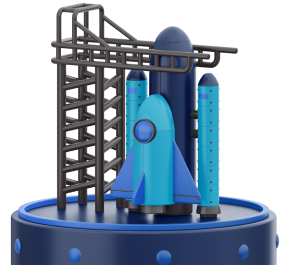
Related posts
Check out some similar posts.
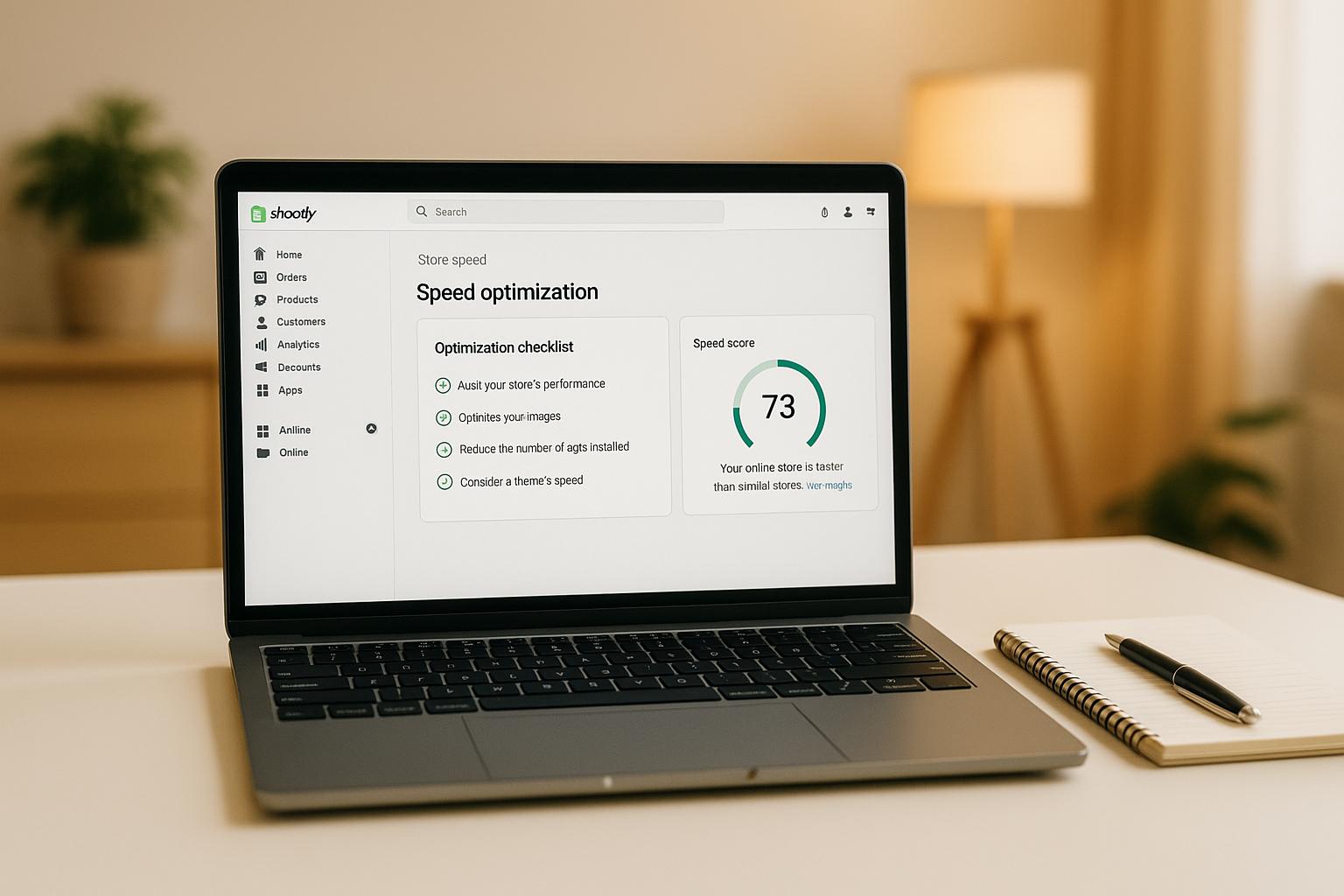
- ECommerce
Improve your Shopify store's speed with essential optimization techniques, including theme selection...
Read more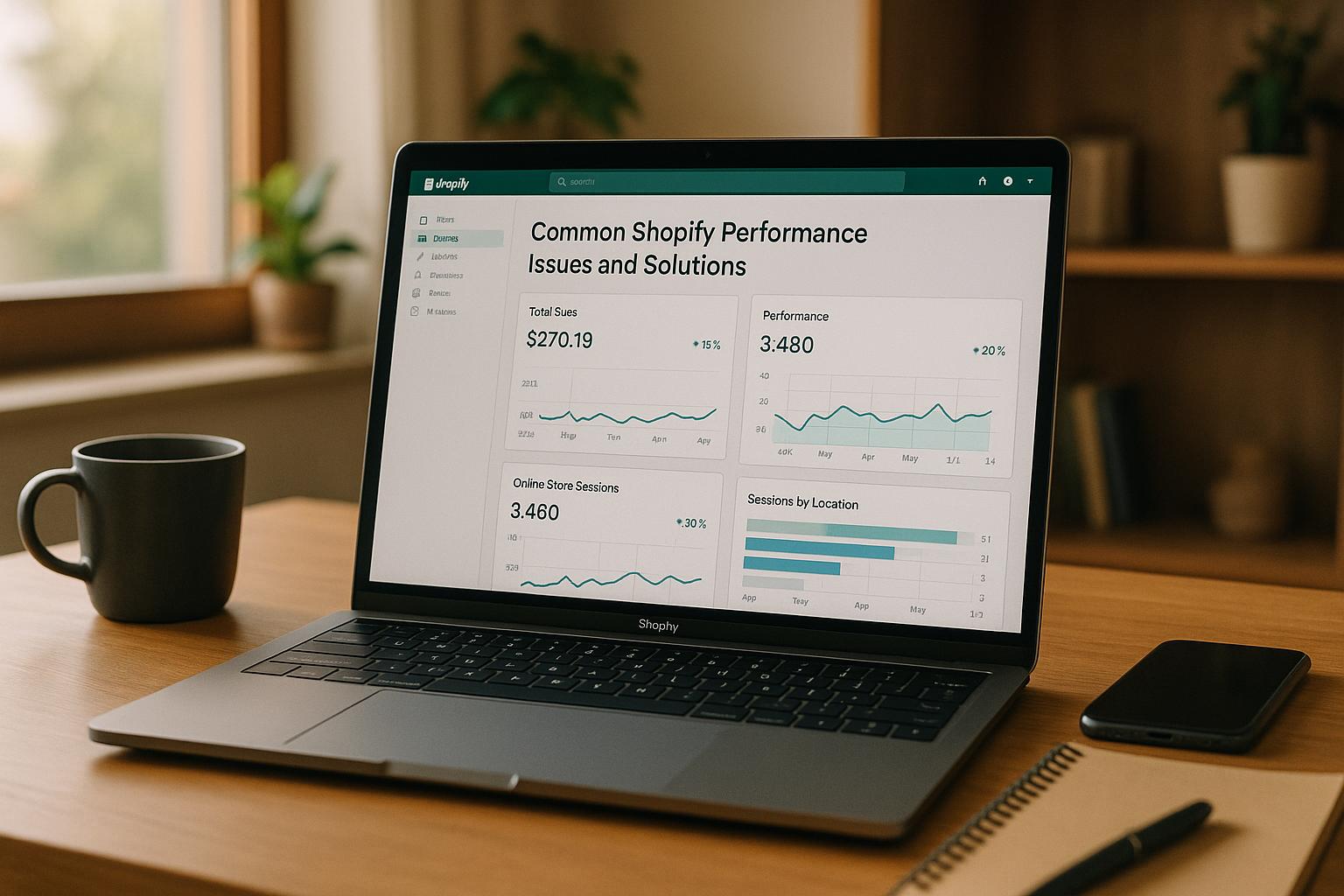
- Development
Learn how to tackle common performance issues in your Shopify store to enhance speed, improve user e...
Read more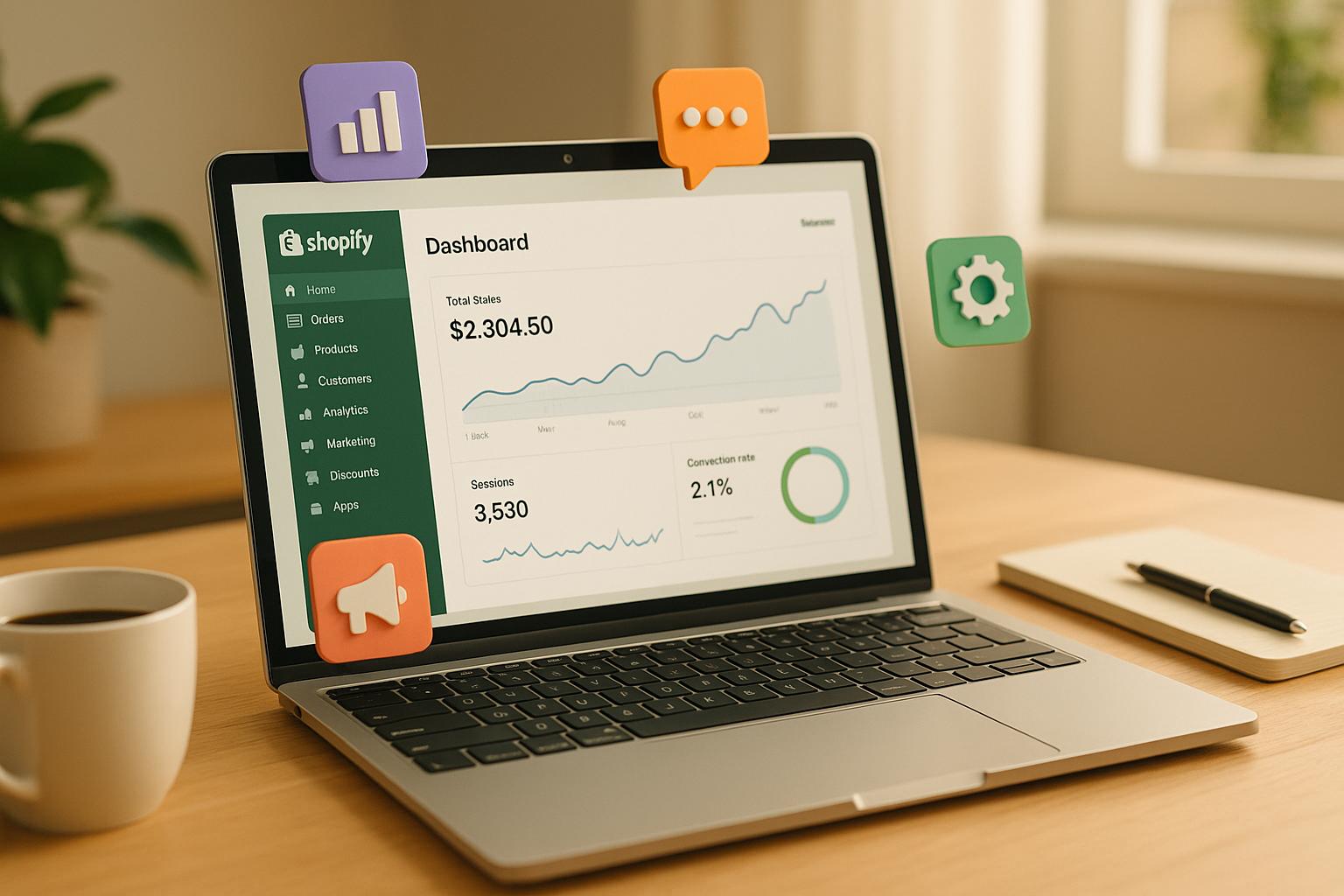
- Development
Explore essential Shopify apps that can significantly boost your store's conversion rates and enhanc...
Read more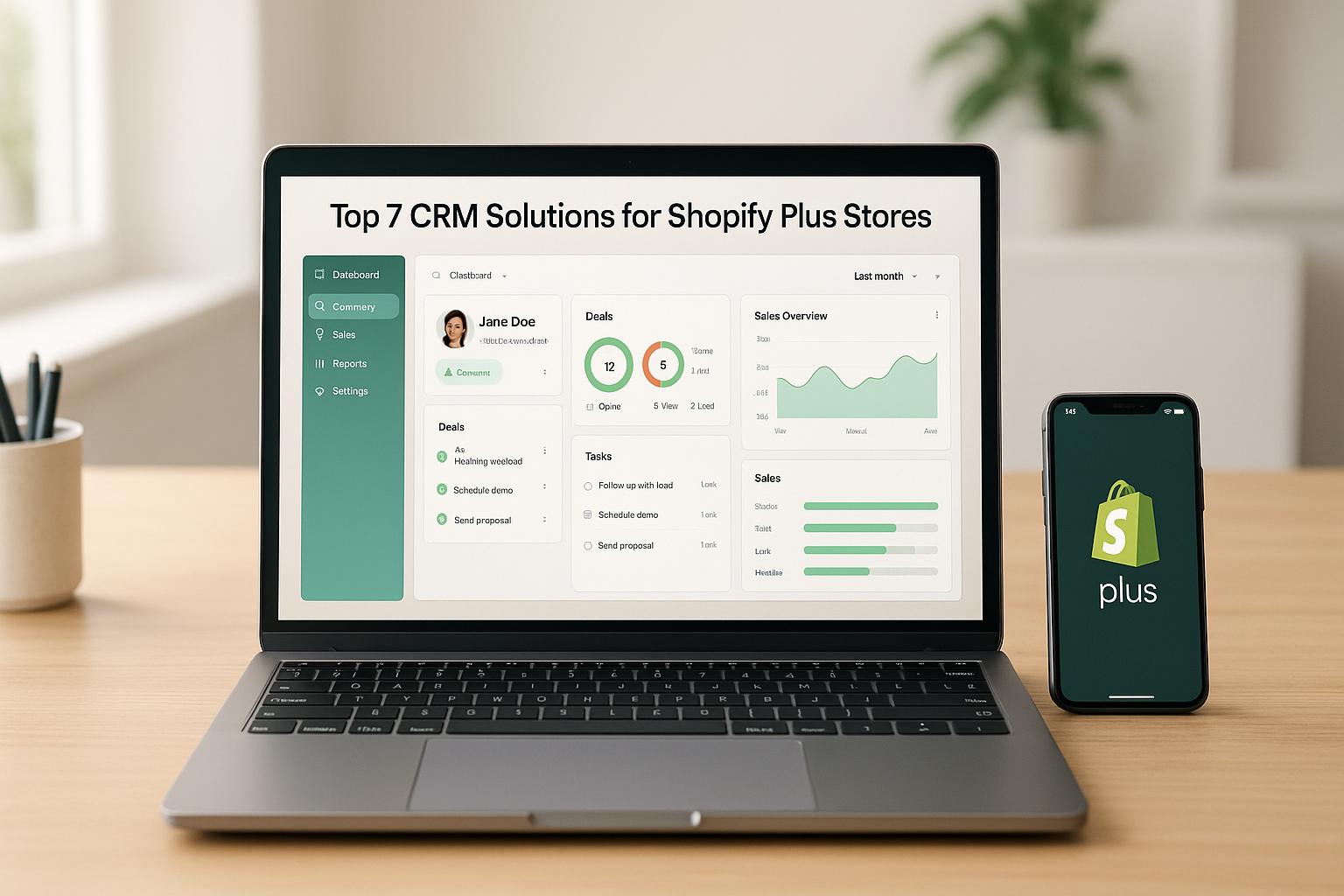
- Development
Explore top CRM solutions for enhancing customer relationships and boosting sales in Shopify Plus st...
Read more